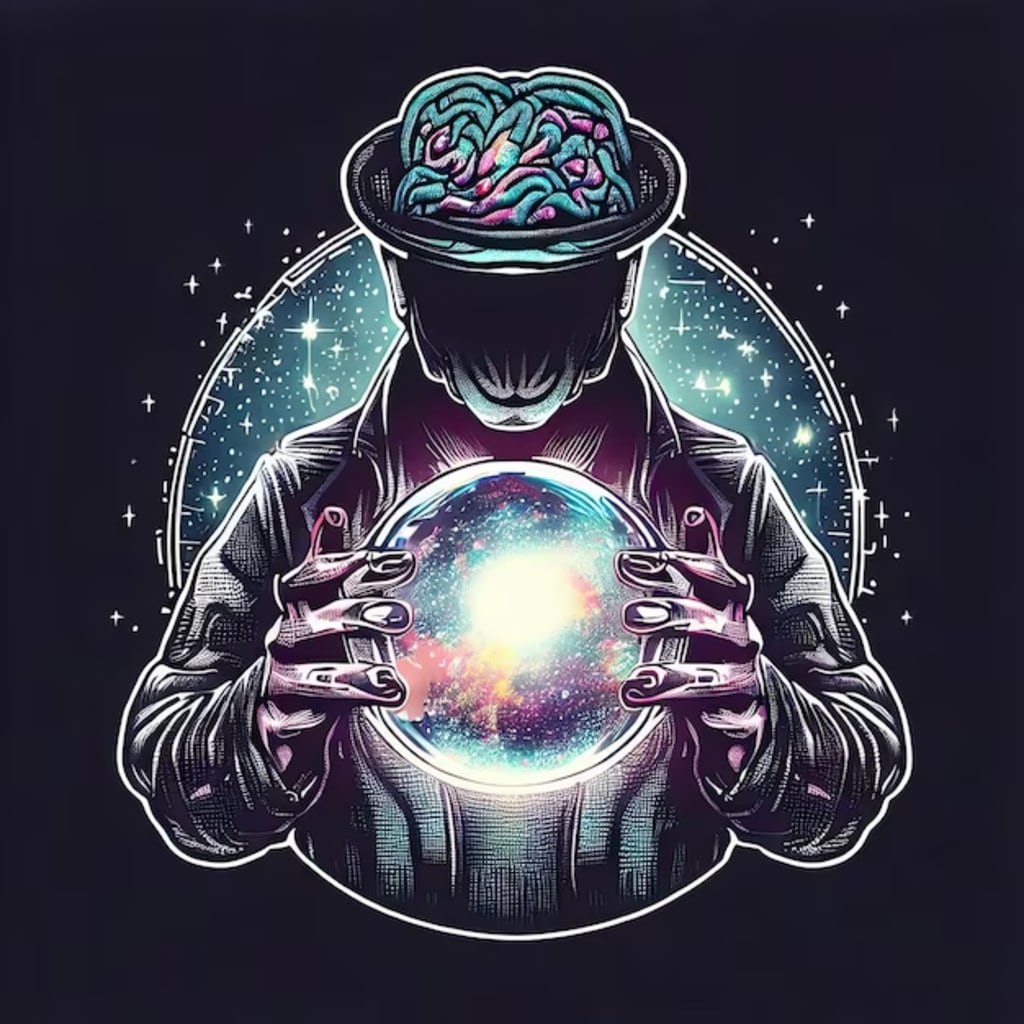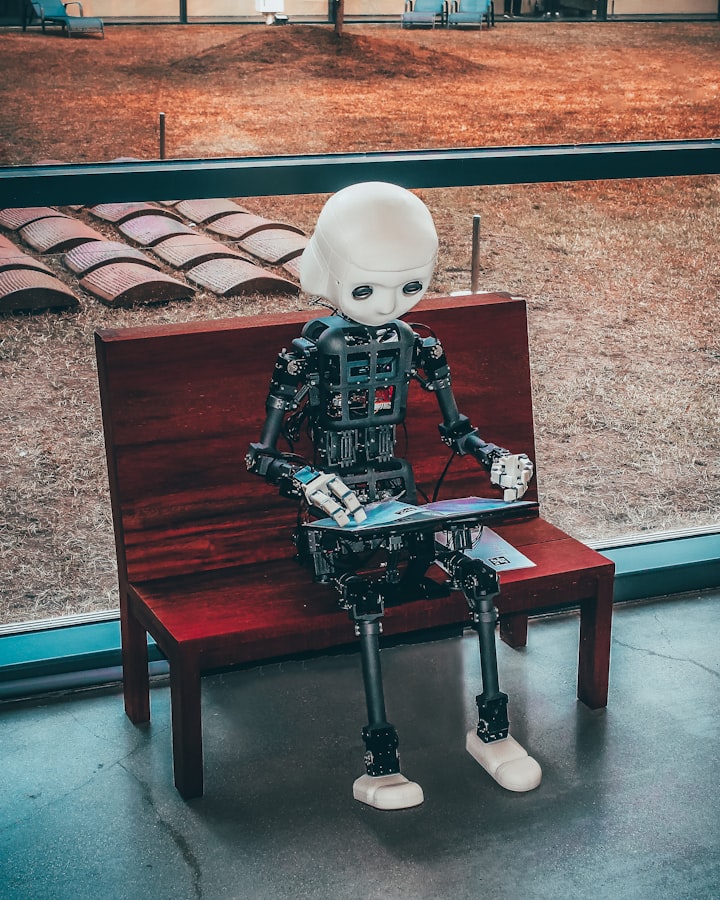The Art of Captivating Minds: Exploring the Vital Role of Storytelling in Human Evolution
The importance of storytelling in Human civilization.

- The power of storytelling
Storytelling is a timeless art that has captivated human minds for centuries. It has the unique ability to transport us to different worlds, evoke emotions, and connect us with others. Whether it is through words, images, or even gestures, storytelling has the power to leave a lasting impact on our lives. From the ancient oral traditions to the modern digital age, storytelling has played a vital role in shaping human evolution.
- The history of storytelling
The history of storytelling can be traced back to the earliest civilizations. Long before the invention of writing, ancient storytellers relied on the power of oral communication to share knowledge, pass down traditions, and entertain their communities. These storytellers were highly respected members of their societies, often serving as historians, teachers, and spiritual guides. Through their stories, they preserved the collective wisdom and experiences of their people, ensuring that future generations would not forget their roots.
- The evolution of storytelling
As civilizations advanced, so did storytelling. With the invention of writing, stories could now be recorded and preserved for future generations. This marked a significant shift in the way stories were shared and consumed. The written word allowed for a wider dissemination of stories, reaching audiences beyond the immediate community. The advent of printing further revolutionized storytelling, making books more accessible and paving the way for the democratization of knowledge.
- Oral storytelling traditions
Despite the advancements in technology, oral storytelling traditions have never lost their charm. Even in the age of digital media, there is something uniquely captivating about sitting around a campfire and listening to a skilled storyteller weave their tale. Oral storytelling allows for a direct and intimate connection between the storyteller and the audience. It fosters a sense of community and creates a shared experience that is difficult to replicate in other mediums.
- The importance of storytelling in ancient cultures
In ancient cultures, storytelling was not merely a form of entertainment. It was a way of preserving cultural heritage, transmitting moral values, and reinforcing social norms. Ancient storytellers were the keepers of their people's history, using stories to teach important lessons and impart wisdom. Through myths, legends, and fables, they explored complex themes such as love, courage, and the nature of good and evil. These stories served as a moral compass, guiding individuals and societies toward a more ethical and harmonious existence.
- The cultural significance of storytelling
Storytelling is deeply ingrained in the fabric of every culture. It reflects the values, beliefs, and aspirations of a society, giving voice to its collective identity. In many indigenous cultures, storytelling is not just a means of communication but a sacred ritual. It is a way of connecting with the spiritual realm, honoring ancestors, and seeking guidance from the divine. Storytelling festivals and gatherings continue to be celebrated around the world, showcasing the rich tapestry of human narratives and fostering cross-cultural understanding.
- Why do people tell stories?
The act of storytelling is an inherent part of being human. From the early stages of childhood, we are drawn to stories. But why do we tell stories? One reason is that storytelling helps us make sense of the world around us. It allows us to explore complex ideas and emotions, providing a framework for understanding our own experiences. Stories also serve as a form of social bonding, connecting individuals and communities through shared narratives. In a world that can often feel fragmented, storytelling has the power to bridge the gaps between cultures and foster empathy and understanding.
- The role of storytelling in human evolution
Storytelling has played a crucial role in shaping human evolution. It has allowed us to communicate complex ideas, pass on knowledge, and preserve our cultural heritage. Through stories, we have been able to transcend the limitations of time and space, connecting with people who lived long before us and those who will come after. The ability to tell stories and share our experiences is what sets us apart as a species, enabling us to learn from the past, imagine the future, and create meaning in the present.
- The impact of storytelling on the brain
Science has shown that storytelling has a profound impact on the brain. When we listen to a story, our brains become highly engaged, activating multiple regions associated with language, memory, and emotions. This heightened brain activity not only enhances our ability to remember information but also allows us to experience the story on a deeper level. Neurological studies have even shown that storytelling can stimulate the release of oxytocin, a hormone associated with trust and bonding, further reinforcing the social and emotional benefits of storytelling.
- The science behind storytelling
The power of storytelling lies in its ability to tap into our innate cognitive processes. Stories have a narrative structure that our brains are wired to respond to. We are naturally drawn to stories with a clear beginning, middle, and end, as well as characters and conflicts that we can relate to. This cognitive resonance allows us to immerse ourselves in the story and become emotionally invested in its outcome. By understanding the science behind storytelling, we can harness its power to create more compelling narratives that resonate with our audience.
- Storytelling in modern society
In today's fast-paced and digitally-driven world, storytelling has taken on new forms and platforms. From books to movies, podcasts to social media, the opportunities for storytelling are endless. Digital technologies have made it easier than ever for individuals to share their stories with a global audience. Social media platforms like Instagram and YouTube have given rise to a new generation of storytellers, who use visual and interactive mediums to engage and inspire others. The democratization of storytelling has empowered individuals from all walks of life to have their voices heard and their stories told.
- The future of storytelling
As technology continues to advance, the future of storytelling holds endless possibilities. Virtual reality and augmented reality have the potential to revolutionize the way stories are experienced, immersing audiences in fully interactive and immersive narratives. Artificial intelligence and machine learning can be used to create personalized storytelling experiences based on individual preferences and interests. The future of storytelling is not just about new technologies, but also about embracing diverse voices and perspectives. By telling stories that reflect the richness and complexity of the human experience, we can create a more inclusive and empathetic world.
- Conclusion
Storytelling is an art that has stood the test of time. From ancient civilizations to modern societies, storytelling has played a vital role in human evolution. It has shaped our cultures, connected us with our past, and inspired us to imagine a brighter future. Whether through the spoken word or the written page, storytelling has the power to captivate minds, ignite imaginations, and foster a deeper understanding of ourselves and the world around us. So, let us continue to tell our stories, for they are the threads that weave the tapestry of our shared humanity.





Comments
There are no comments for this story
Be the first to respond and start the conversation.